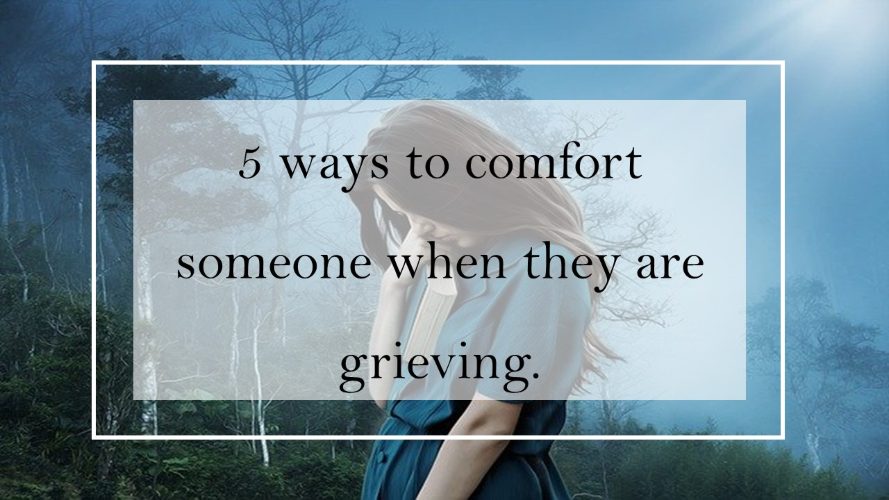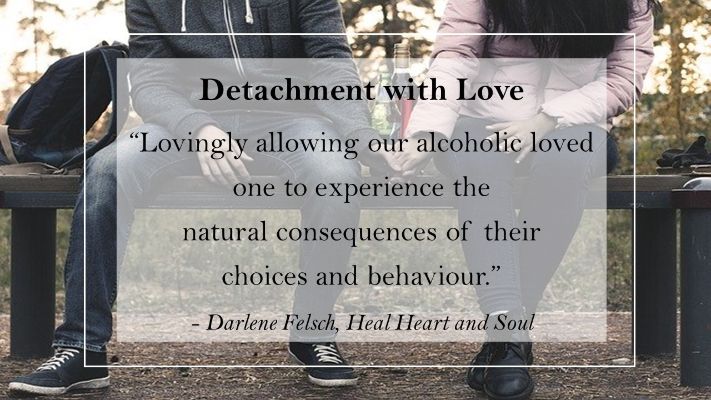
Five ways to comfort someone who is grieving
When someone has suffered a tragic loss, it can be hard to know what to do to help.
If someone close to you is grieving, God has put you beside that person for a
special purpose – to walk alongside them while they grieve.
Grief can come from all types of loss – some, more severe than others, for example:
- Death of a loved one
- Divorce
- Job loss
- Fertility issues – inability to have a baby
- A loved one having a serious addiction, such as drugs and alcohol
- Death of a treasured family pet
- Severe or long-term illness, such a Cancer
I learned a lot about grief when my son was born with special needs.
It was such a shock; something we had never contemplated happening.
The doctor who told us the news handled it very badly, making it much worse than it needed to be.
The hardest thing for us was that many people didn’t understand why we were grieving. The effectively ‘rejected’ our grieving. It’s as if the situation wasn’t bad enough to warrant grieving over.
There is a name for this. It is called ‘Disenfranchised Grief and Loss’.
Every parent hopes for a perfectly healthy child. Most parents don’t expect something to be wrong with their child.
When a child is born with special needs, the parents suffer the loss of the perfect child they had hoped for.
The future is now full of the unknown.
What does the child’s future hold?
What if they have medical complications?
What if they die?
Will they be able to study and get a job?
Will they be able to live independently when they grow up?
Will they be teased and rejected by their peers? The questions go on and on.
Here are 5 ways to help someone who is grieving:

1. Don’t judge their response to the situation. Accept it.
There is no right or wrong way to grieve.
Everyone is different. Everyone will react differently. Everyone comes from a different background and with different life experiences.
Some people may have learned how to process difficult emotions as they grew up, but others may never have learned this, so they just spiral out of control.
Never judge a grieving person.
Completely accept however they are responding to their grief. It is normal for them.
Romans 12:15 “Rejoice with those who rejoice; mourn with those who mourn.”
2. Do reach out to them even if they don’t respond to you
Even if you are afraid of doing or saying the wrong thing, still reach out to them.
They need to know you are there and that you care about what they are going through.
Let them know that you are there just to listen anytime.
Even if they don’t return your call or thank you for a card or a meal, know that they appreciate it anyway.
I remember when I was in a Mother-Baby unit in hospital with Post-natal depression when my son was 10 weeks old. Quite a few people rang or sent cards, but I was so unwell that I wasn’t able to respond to most of them.
Some people got very offended that I didn’t get back to them. When I got out of hospital, they made it clear how much I had ‘hurt their feelings’ by not getting back to them.
When you are the one suffering a loss, it’s about your feelings, not theirs.
But they didn’t understand that it’s not that I was rude or ungrateful, I was simply unable to respond. But hearing from them, getting a message that they had called, getting some flowers or a card – it all helped tremendously. It was so encouraging to know that they cared.
When you are grieving, it saps you of every bit of strength you have. You have no energy left to make other people feel appreciated.
Whether you hear back from the grieving person or not, keep gently reaching out to show that you are there if they need you.
Offer to do something practical such as baby sit their kids or clean their house so they can have some time to themselves.
Just be there. If you get the impression that they don’t want you there in person, still show up in other ways, such as with cards, emails and flowers.
Be there for them for the long haul. Don’t just be supportive until the funeral is over and then leave the grieving person alone. Their grief doesn’t just stop now that the funeral is over.
They are just taking their first few fledgling steps through the grief process and towards healing. They need to know you are there for them for as long as it takes.

3. Don’t try and cheer them up
When someone is grieving, you desperately wish you could help them feel better, but trying to ‘cheer them up’ or tell them to ‘snap out of it’ are completely unhelpful.
It will probably result in them withdrawing from you as the things you are saying are actually hurting more than they are helping. This leaves the person grieving with less support just when they need it the most.
Our son’s disability is mainly physical. It was so painful when he was born and people all around us said ‘what are you worried about? At least his brain is all right’.
This was not helpful!
My husband and I had both had a terrible time with being teased in school and we were sincerely concerned, knowing that our son’s physical disability meant he was obviously very different to his peers and he might get teased. And yes, we were allowed to feel sad about this!
4. Don’t give them platitudes
Platitudes are ‘meaningless sayings’.
When someone’s child has passed away, for example, don’t say:
- Oh Jesus needed him in heaven more than you needed him here; or
- It’s all part of God’s plan
The person doesn’t want the person to be in Heaven right now, they want them here with them.
While the promise of Heaven can bring some comfort in time, it does little to reduce grief when it is very raw.
5. Don’t try to hurry up in the grieving process
There is no right or wrong length of time for someone to grieve. This will vary considerably from person to person.
Of course, if it’s 12 months down the track and the person still cries all day every day and has not been able to begin getting on with their life, perhaps they need some extra support to move forward.
But generally, people will move through the grieving process at their own pace and it is not your job to judge that pace or try to hurry them along.
Conclusion
Everyone grieves differently and for different lengths of time. The main thing is to let them know that you are there to support them in any way that helps. If you don’t hear back from them, don’t be offended, just pull back a little and continue to support them with cards, flowers, a meal etc. Even if the person grieving doesn’t have the strength to respond to you reaching out to them, it will mean the world to them that you did.





